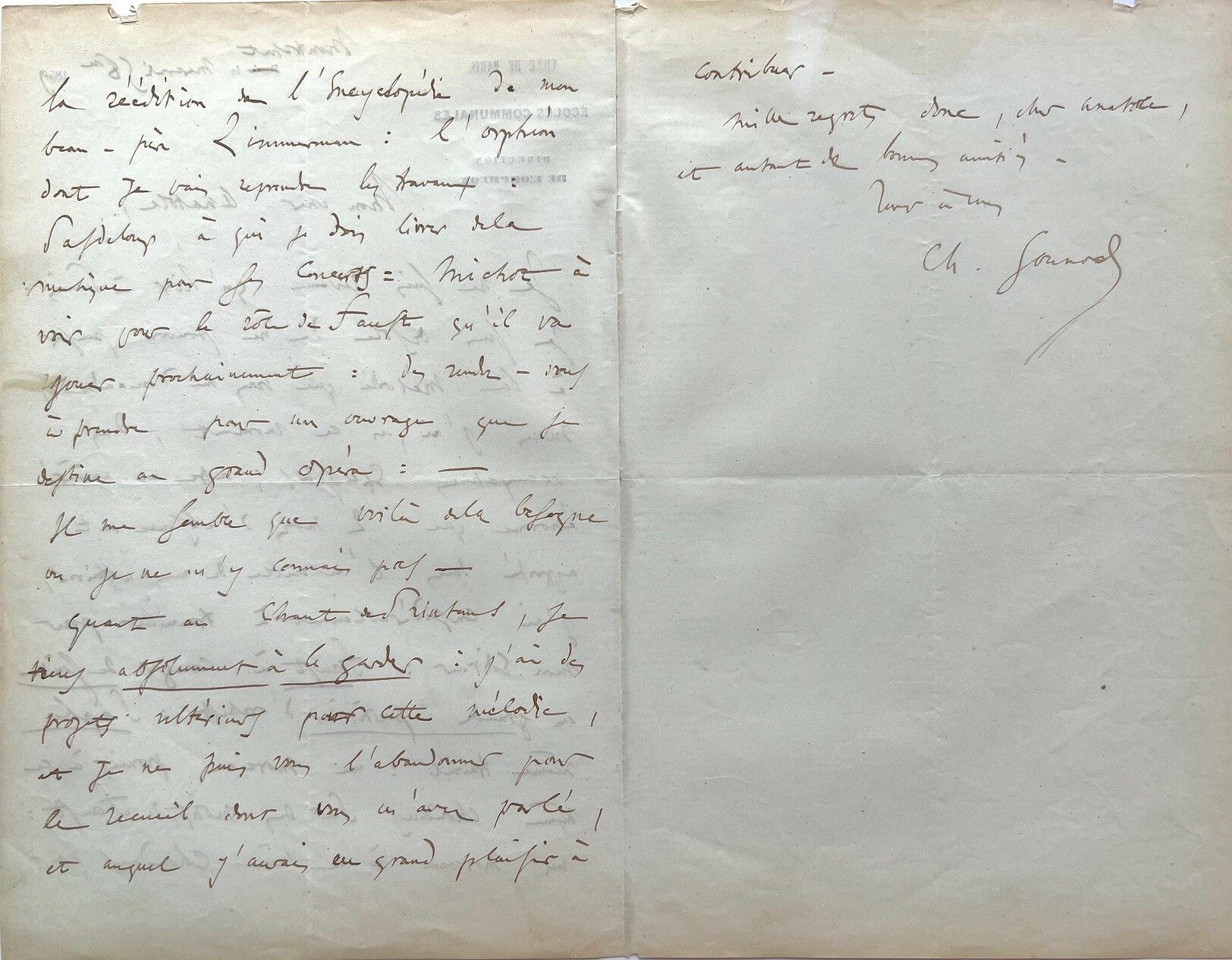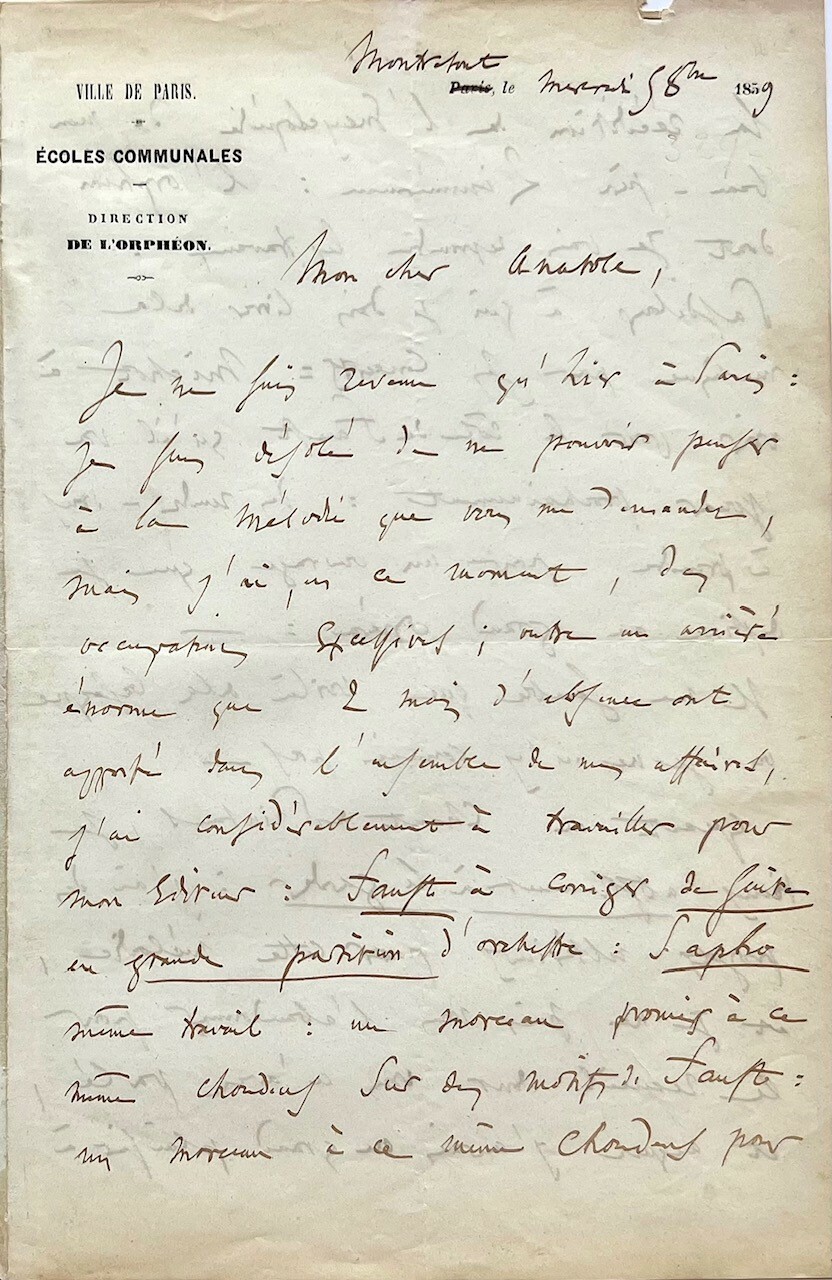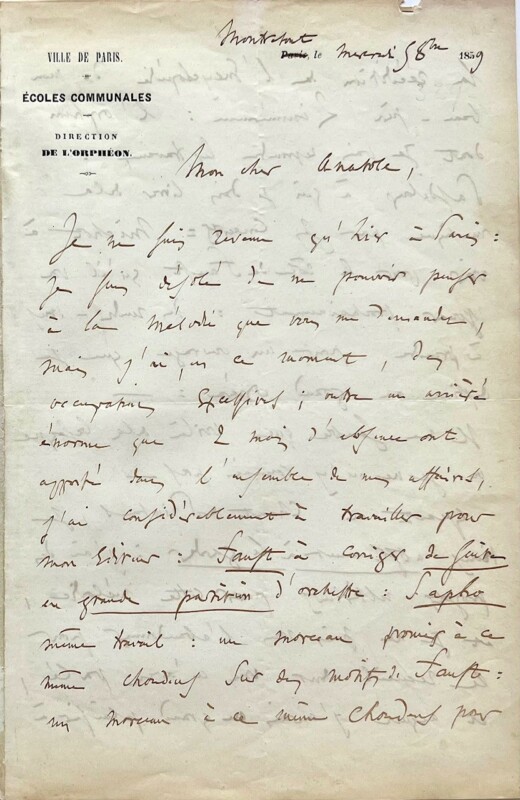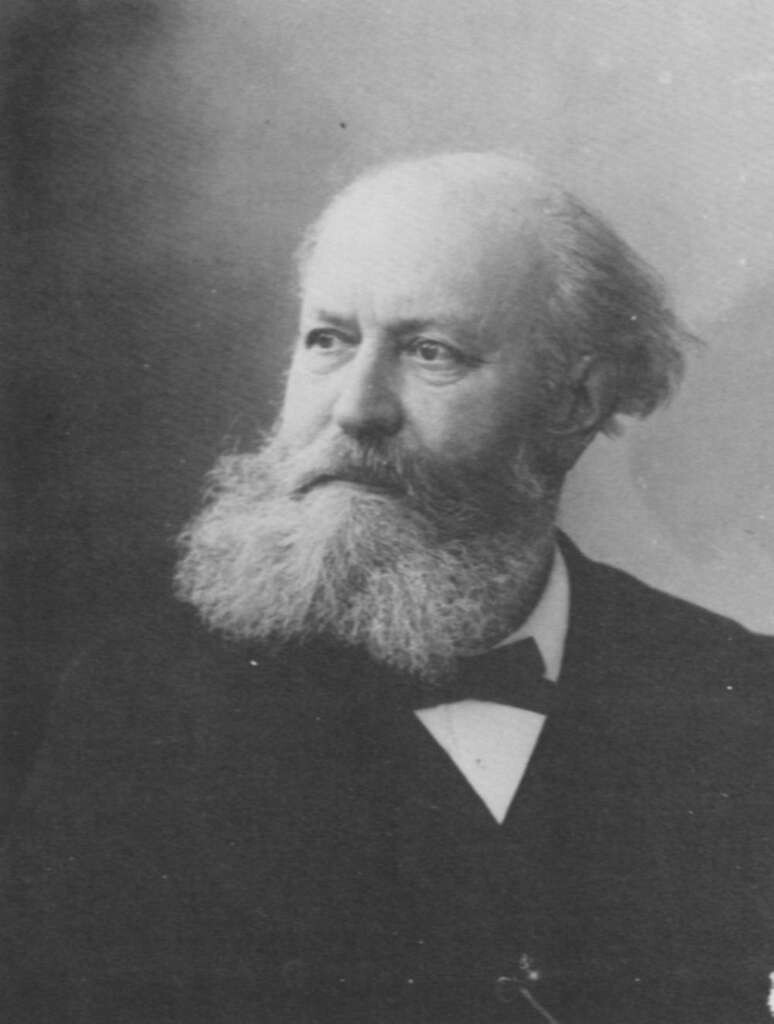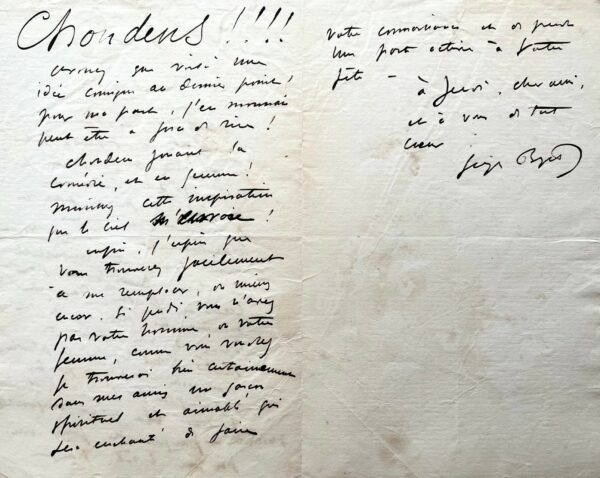GOUNOD, CHARLES. (1818-1893). French composer. ALS. (“Ch. Gounod”). 2¼ pp. 8vo. Paris, October 5, 1859. On Direction de la Orphéon stationery. To Anatole. In French with translation.
“I only returned to Paris yesterday: I am sorry that I cannot give any thought to the melody you asked me for, but right now I am excessively busy; in addition to an enormous backlog that two months of absence have added to all of my business, I have considerable work to do for my publisher: Faust to edit right away into a large orchestra score; same work to do on Sapho; a piece promised to the same Choudens on some of the Faust motifs; a piece for the same Choudens for my father-in-law Zimmerman’s revised Encyclopedia; the Orpheon, whose work I am picking up; Pasdeloup to whom I must deliver music for his concerts; Michot whom I must see for the role of Faust that he will play soon; meetings to organize for a book I am planning on grand opera. This is work to me unless I don’t know what that is.
As for the Spring Song, I absolutely want to keep it: I have ulterior projects for that melody and cannot let you have it for the collection you mentioned to me and to which I would have been very happy to contribute.
A thousand regrets, dear Anatole, and as many friendly regards…”

